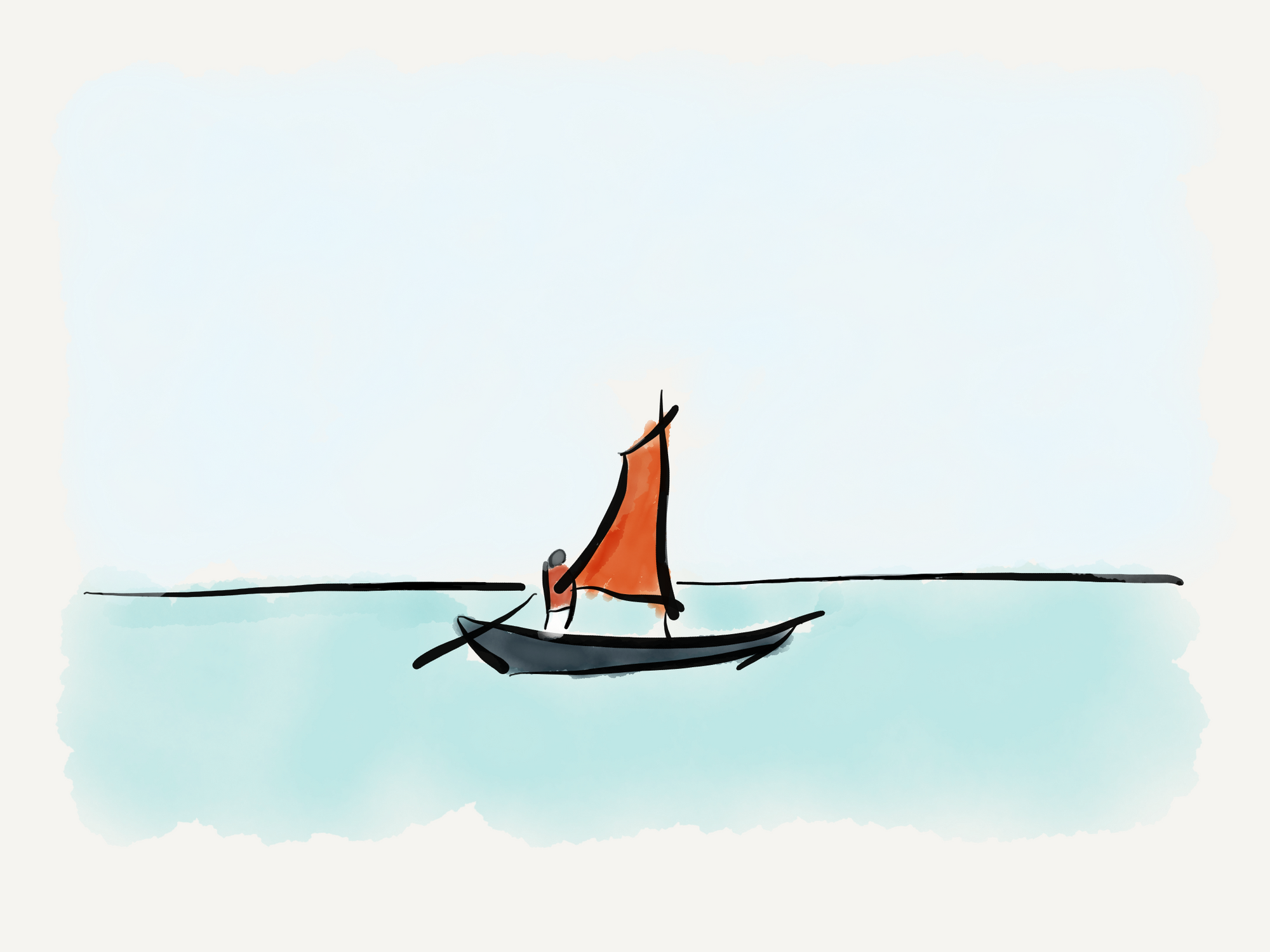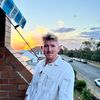Wu wei (无为) — The art of not forcing

The controlled accident.
Sometimes it gets mistaken for "do nothing" or "doing nothing".
Because the characters 无为 (wu wei) mean nothing (wu, 无) and doing (wei, 为).
So although a literal translation would be doing nothing, it doesn’t mean the same as sitting around all day.
Although it might be fun for two or three days, eventually one has to force themselves to sit around all day.
Above all, humans don’t like being bored.
Therefore literally doing nothing is not inline with the art of not forcing.
The saying comes from the philosophy of Taoism, especially Lao Tzu and Chuangtze (there are several different ways to spell these names, however, I’ve chosen the ones I most recognize).
One of the best ways to understand wu wei is by the comparison of the sailor and the rower.
While the rower uses effort, the sailor uses magic.
By putting up a sail and riding on the wind, the sailor does not force things.
Rather the sailor rides the forces versus trying to create them.
The concept here is that human effort is very imprecise and often interferes with the sensational patterns found in nature.
Take the shape of a cloud, have you ever seen one that looks out of shape?
Or the patterns in tree bark.
Or the sounds of a stream.
Do any of these sound or look out of place?
Yet they spontaneously arise without effort.
There was a Chinese Zen master who used to get drunk on rice wine and then paint by first dipping his long hair in ink and then slapping it upon a canvas.
In the morning he’d review the patterns created by his drunken hair slaps and proceed to make something out of it.
When watching a performance, it’s a true spectacle if it appears effortless.
The shine of something starts to wear off when you begin to learn how it’s done or if it appears forced.
A magician doesn’t reveal their tricks on purpose.
When you learn that a magic trick takes advantage of your limited perceptions, it ceases to be magic.
Oh I know how you did that!
I try to explore this technique when writing when creating when existing when conversing when exploring.
Note the paradox of trying to not try.
However, when writing I think about things to say but for many first drafts I like to let whatever comes out come out.
And then come back to it later and edit it.
The more I let things flow, the better they seem to be.
Rough edges show themselves but often rough edges are where the flavour is (wabi-sabi, the aesthetics of imperfection).
Like the crunchy part of a toasted sandwich.
There are two points of view to this.
Everyone knows the feeling of being cumbersome when first starting something new.
You get caught up in the complexity of a new task. Trying to think about it step by step, using effort instead of magic.
But many things take time to learn and so it’s funny that all of the years of learning something eventually leads to an ideal state of not having to think about doing it.
As in, acting on instinct instead of thinking about the steps.
First learning to write and having to think about the ordering of letters.
First learning to walk and having to think about which foot goes where.
Yet now you can write and walk with little to no effort.
Thanks to years of practice and the childlike exploration of not forcing.
The controlled accident of spelling words wrong or tripping over.
Each of which eventually lead to being able to write and tell stories.
Or walk through a forest.
Disciplined practice leads to the spontaneous show.
Oh what a skill to have!
To approach everything with wu wei.
To not force.
To let let let it happen.
To put up a sail and ride the winds.
But to row if you need to.
Because even effort can be applied effortlessly.
When you know the grand source.
The grandest limitless source.
Of the grandest limitless creations.
The fountain of creation arises out of nowhere.
And leads to nowhere.
The dance, the swing of the hair, the tapping of fingers on keyboards, the sound of feet moving rocks on the ground.
These are the rewards.
Books
Over the past few years I’ve been reading a collection of works which describe ideas such as wu wei. I find them fascinating.
Namely:
- The Tao Te Ching by Lao Tzu — The original book outlining the concept of Tao and many of the ideas of Taoism.
- The Watercourse Way by Alan Watts — A lyrical exploration of the Tao and how it relates to modern (20th century onwards) Eastern and Western life.
- The Wisdom of Laotse by Lin Yutang — A collection of Chuangtze’s (one of Lao Tzu’s most known disciples) commentary on the Tao De Ching translated and explained in English by Lin Yutang.
